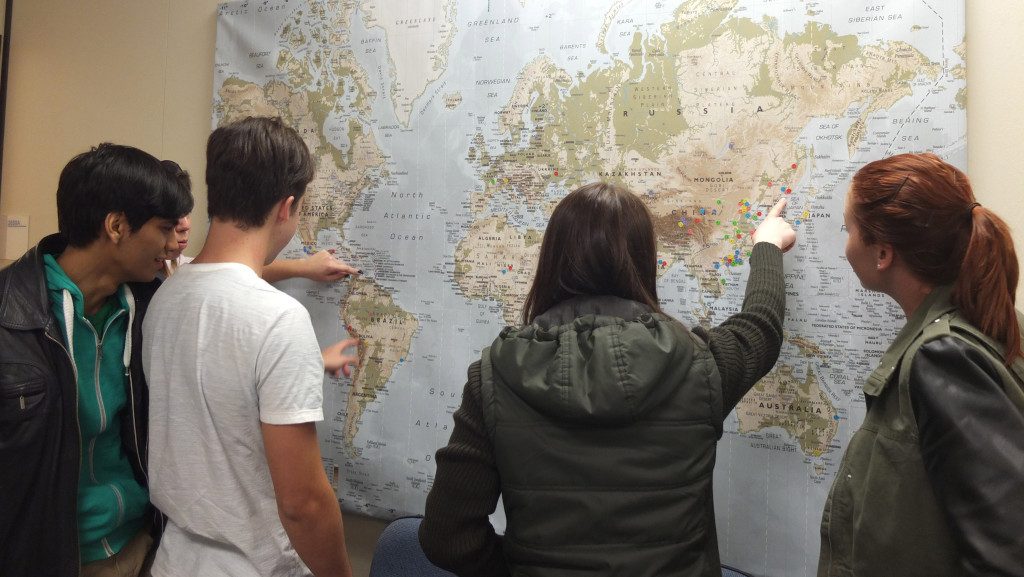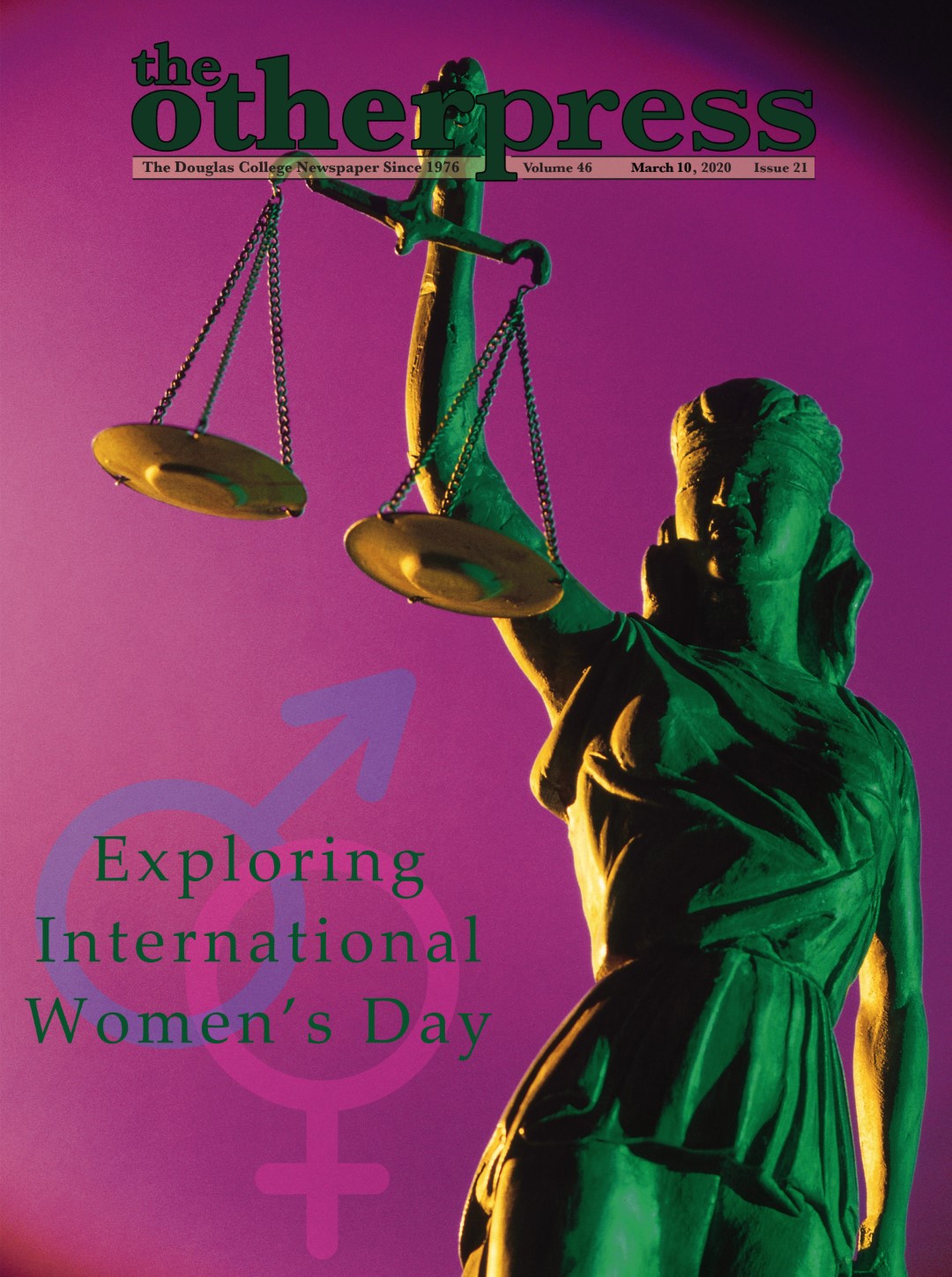Vancouver: shattered mosaic or melting pot
By Elliot Chan, Staff Writer
Look carefully through the urban retail stores, coffee shops, and construction sites, and you will see the foundations of Vancouver: a First Nation’s totems pole, a Chinese noodle house, a Punjabi market place, and an Italian bocce game. Culture is defined in the Oxford Canadian Dictionary as “the arts and other manifestations of human intellectual achievement regarded collectively.” But together, there is little agreement.
Fusion. While some promote the idea of cultures merging together, others are disgusted by the thought of losing their heritage. Vancouver claims to be an accepting place to learn, work, and live, but in a city where we can choose to be whoever we want, we still choose to blend in with our own. If each community separates themselves, is the city still unified? Or are we all just functioning on different levels of tolerance? Canada has never been more diverse, and with population increasing, a utopia seems ever more elusive.
“If you come to France, you accept to melt into a single community, which is the national community,” said French president Nicolas Sarkozy a few years back, “If you do not want to accept that, you cannot be welcome in France.”
David Cameron, Prime Minister of Britain, echoed the same ideals: “We don’t tolerate racism in our society carried out by white people; we shouldn’t tolerate extremism carried out by other people.”
While Canada is still driven by the visions of Pierre Elliott Trudeau, other world leaders agree that the best way to rid violence and hate is for those immigrating to different countries to fully accept the established customs—but discarding baggage is easier said than done.
Taranjot “T.J.” Kaur, a Douglas College international student from India, understands how difficult it is to be accepted into a new environment. “People already have friends living here, so they don’t want to be friends with someone they don’t know,” she said. “You are not at that comfort level. At first you want to be with people that understand you and your needs. And later on, you can go out and be friends.”
“It’s very scary talking to domestic students,” said Natalia Zinoveva, an international student from Russia. “I was super shy and they weren’t really nice… they started guessing my accent. I would be sitting there and they would be talking like I’m not there. What the heck, people? Now I have Canadian friends, but they also seemed not nice in the beginning.”
The initial fear is common, causing travelers to retreat into their shell. But despite the anxiety, the students still remember why they chose Canada. Ruab Waraich recalls her reasons for leaving India, “Canada has a good ranking in the English-speaking world in terms of education. The job opportunities are good here,” she also added. “Canadians have a good reputation.”
But despite the first-class reputations, locals’ connections with internationals are often met with reproach. “Whenever you talk to them,” said Kaur, “they will first ask you, ‘By the way, where are you from? You don’t sound Canadian.’ That’s not your problem. It’d just be nice if they ignored it.”
Such exchanges rarely happen back home in Brazil for Rodrigo Meirelles, “You don’t usually ask people where they are from in Brazil, because everybody is Brazilian. But here there is the law of multiculturalism, which is awesome, but some of us need to study more. If we choose to come here, it is us who need to adapt—not them.”
Rigel Biscione from Venezuela doesn’t think everything should be one-sided, and that locals should meet internationals halfway. “They should be used to the fact that there are a lot of international people and interact with us.”
According to surveys from over the past decade, 85 per cent of Canadians support multiculturalism—a percentage not shared by most countries. So how are our diverse communities different from theirs? Some believe that the word “multiculturalism” itself has changed in Canada, particularly in Vancouver. We are now focused more on the “multi” part, and less on the “culturalism.”
We must keep in mind that Canada is still a young country at 146-years-old, and Vancouver is only 127. Comparing our youthful culture to that of Britain, France, and Germany seems unfair; after all we are still prepubescent, slowly learning who we are and what we want to be when we grow up.
Language retention rate and the amount of time ethnic communities have been in Canada can determine how each has adapted to Canadian customs. In the early 20th century, a large group of Italians immigrated to Canada, followed by another group after World War II. Only 39 per cent can now speak Italian fluently. Meanwhile, Indians who traveled to Vancouver to work in the booming lumber industry a century ago, still have an overwhelming 84 per cent fluency in Punjabi; a large enough demographic to develop a Hockey Night in Canada Punjabi broadcast. It’s easy to see how much each culture differs. Some are open to change, while others are more conservative, tentatively adapting. As time passes, will the next generation grow up with their ancestral customs and be segregated or will they acclimatize to Vancouver’s default culture?
“They have this idea that they have no culture,” said Meirelles. “If you ask [Canadians], most of them will say, ‘Oh I was born here, but my parents are from…’ Wherever. I feel like they don’t want to be Canadian.”
But deep down there are hints; distinctive traits that only Canadians have. “They say thank you and sorry to furniture,” Waraich noted with a chuckle.
“I would never wear pajamas to school,” said Zinoveva, describing the laid back style of Vancouver. “I’m so confused. Do they put on a different pajama or did they just wake up from bed? You know, school pajamas.”
“Latinos speak really loud,” said Meirelles with a shameful shake of his head. “When I came here I was taking the SeaBus and everybody was super quiet reading their books and I would always hear someone ‘Blah! Blah! Blah!’ and then I’ll pay attention and they are speaking Portuguese. Oh yeah, Brazilians.”
“Same goes for our culture too,” said Kaur, “It looks really rude, but it’s not rude.”
Canadians are the wallflowers of the globe, even in their own country. Looking back at the definition of culture, there is one thing most Vancouverites can agree on: we are polite, soft-spoken, and carefree. We may be health and safety freaks and can be a bit pompous, but with a quick glance around the globe, we can see that no culture is perfect. But it is reassuring to have a united trait.
On any given day, on any Vancouver promenade, there is a place for you. “That’s the thing I like here,” said Biscione. “I don’t ever get bored. I can do something new every day.” So perhaps that is Vancouver’s culture. The choice to be a piece in a mosaic in the morning and melt in a pot at night, it doesn’t matter, because in a city where everybody and everything is so different, there are no outsiders.



